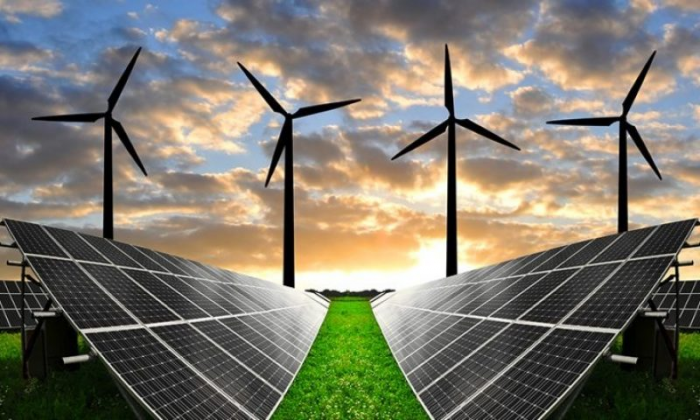
Overview
One of the most crucial distinction with regard to RES in Greece is between mainland grid and interconnected islands and non-interconnected islands. Interconnected islands are primarily islands that are connected to the mainland transmission and distribution grid. Non-interconnected islands concern isolated electricity systems, not connected to the mainland grid. This differentiation is crucial as it differentiates the kind and level of support, for which RES plants are eligible.
In general, RES technologies are promoted with different support schemes. Firstly, Law No. 4399/2016 supports through subsidies/ tax reliefs for specific RES technologies. A Feed-in Tariff is offered to small-scale RES (below 400 kW on interconnected islands, below 3MW for onshore wind and below 500 kW for PV and all RES on non-interconnected islands). In addition, RES on interconnected islands that participate in the electricity market may benefit from a Feed-In Premium tariff, while bigger PV (>500kW) and onshore wind plants (> 3MW) can take part in tenders. Finally, a net-metering scheme is also introduced for all RES plants, especially PV and onshore wind < 60kW.
According to the NECP, Greece aims at increasing the overall share of renewable energy sources (RES) in its gross final energy consumption to 35% by 2030. In the electricity sector, the share of renewables will rise to at least 60% (NECP).
Summary of support system
- Subsidy (Development Law) – Subsidy is offered to small hydro power plants, CHP plants, hybrid plants and other RES only for autonomous production.
- Tax regulation mechanism (Development Law) - Tax relief is offered to small hydro power plants, CHP plants, hybrid plants and other RES only for autonomous production.
- Feed-in tariff - RES plants below 400 kW on interconnected islands and all RES on non-interconnected islands are eligible for a Feed-In Tariff
- Premium tariff (Feed-In Premium) - RES and CHP plants on interconnected islands participate in the electricity market and may be awarded with a sliding feed-in premium.
- Tenders / Auctions (Competitive PV/Wind Tenders) - Greece carries out “technology-specific tenders” (for wind and PV plants jointly or separately) since 2016. From 2018 onwards, 2 tenders for each RES technology and one joint tender for both technologies have taken place.
- Net-Metering (Net-metering and virtual net-metering) - Net-metering is applicable to all RES plants since 2019. Additionally, non-profit legal entities are eligible for virtual net-metering. The net-metering process is similar to interconnected and non-interconnected islands. However, restrictions apply to both cases, with regard to the maximum capacity of each RES plant.
Competent authorities
- MEE
- MinDev
- HEDNO
Overview
In general, RES technologies are promoted with different support schemes. Law No. 4399/2016 supports through subsidies/ tax reliefs for specific RES technologies. RES H&C infrastructure is also eligible for support. In addition, the Programme “Exsoikonomo- Autonomo” supports the purchase and installation of RES for the energy upgrading of the domestic sector through subsidies and/or an interest-free loan.
According to the NECP, Greece aims at increasing the overall share of RES H&C in its gross final energy consumption to 42.5% by 2030 (30.6% in 2020). This is expected to be achieved by the increased penetration of heat pumps, especially in the tertiary sector (from 431 ktoe in 2020 to 906 ktoe in 2030), a steadily increasing share of solar thermal (from 296 ktoe to 411 in 2030) and geothermal energy, as well as biomass (from 1,035 ktoe in 2020 to 1,142 ktoe in 2030).
Summary of support schemes
- Subsidy (Programme “Exsoikonomo- Autonomo”) - The Programme provides subsidies and/or an interest-free loan to specific RES H&C technologies (geothermal, aerothermal heat pumps and biomass (pellets), solar thermal, solar water heaters and solar heating).
- Subsidy (Development Law) –subsidy is offered to CHP plants and other RES only for autonomous production.
- Tax regulation mechanism (Development Law)- tax relief is offered to CHP plants and other RES only for autonomous production.
- Support of RES-H infrastructure (Development Law)
- RES-H building obligations (KENAK) - minimum RES H&C requirements in existing and new buildings.
Competent authorities
- MEE
- MinDev
- Technical Chamber of Greece
Overview
The Programme “Kinoumai Ilektrika” subsidises the purchase of EVs by different categories (natural persons, enterprises, taxi owners). In addition, the production of biofuels is eligible for subsidy or tax relief under Law No.4399/2016. Apart from that, a biofuel quota scheme is in place. However, it is not applicable to islands (both interconnected and non-interconnected).
According to NECP, Greece aims at increasing its RES share in final consumption for transport from 6.6% in 2020 to 19% in 2030. Biofuels are expected to increase from 228 ktoe in 2020 to 371 ktoe in 2030 and Electricity from 5 ktoe to 94 ktoe respectively.
Summary of support schemes
- Subsidy (Min. Decision 77472/520) – The Programme “Kinoumai Ilektrikia” promotes e-mobility through the provision of subsidies
- Subsidy (Development Law) - Biofuels production can be promoted through subsidies, according to Law No.4399/2016.
- Tax regulation mechanism (Development Law) - Biofuels production can be promoted through tax relief, according to Law No.4399/2016.
- Biofuel Quota (Law No. 3054/2002) - Producers and distributors of petrol and diesel are obliged to blend their fuels with a certain amount ("quota") of biofuels. For that reason, a distribution call for biofuels is issued yearly that defines all necessary details.
- Support of RES-T infrastructure – charging for e-vehicles (Programme “Kinoumai Ilektrika”) - The Programme supports the installation of charging stations for personal vehicles.
Competent authorities
- MEE
- MinDev
Summary
Greece has submitted its updated version of the National Energy and Climate Plan (NECP) in December 2019. According to the NECP, country is planning to increase the overall share of renewable energy sources (RES) in its gross final energy consumption to 35% by 2030. In the electricity sector, the share of renewables will rise from 29.2% to at least 60% (NECP Greece, 2019).
In terms of both of installed capacity and electricity production, the three major RES technologies are PV, onshore wind power and hydro power. By 2030, PV is expected to reach 11.8 GWh (4.5 GWh in 2020), wind power 17.2 GWh (7.3 GWH respectively in 2020) and hydro power 6.6 GWh (5.5 GWh respectively in 2020).
The licensing process follows specific steps and is summarised below:
• Site selection: The site selection is based on the Special Spatial Planning Framework for RES, which is currently under revision.
• Electricity Production License: Certification of the RES Producer substituted the previous Electricity Production License for RES. This replacement aspires to reduce the duration of the permitting process.
• Administrative Authorisation: This step includes the Environmental Impact Assessment (EIA) approval by the Decentralised Administrations or the Ministry of Environment and Energy (MEE).
• Grid Connection Permit: This step includes the Preliminary Grid Connection Offer (GCO) and Binding Grid Connection Offer (BGCO). Both are relevant for the connection of a RES installation to the electricity grid.
• Corporate- Legal- Fiscal: A tax (3%) is deducted each year from the revenues of a RES plant operator (wind power and PV projects above 20 MW).
• Other: The Installation License authorises the construction of a RES installation, while the Operation License permits the operation of a system. The Operation License is only issued after all other permits have been secured.
Sequential order of process steps
1. Site selection
2. Electricity Production License
3. Administrative Authorisation
4. Grid Connection Permit
5. Corporate- Legal- Fiscal
6. Other
Competent authorities
- MEE
- IPTO
- HEDNO
- RAE
- Decentralised Regional Administrations

Overview
Law No.4513/ 2018 introduced for the first time the concept of Energy Communities. The legislation that governs them today is Law 5037/2023 which incorporated the European directives related to energy communities. Energy Communities could benefit from special provisions such as virtual net-metering. However, some of those beneficial regulations were gradually cancelled.
The legislation provides for three (3) types of Energy Communities:
- Renewable Energy Communities (RECs)
- Citizen Energy Communities (CECs)
- Energy Communities of Law 4513/2018 (establishment until 01/04/2023)
All three types of Energy Communities have the legal form of civil cooperatives of Law 1667/1986, are based on open and voluntary participation and have as their primary purpose to offer environmental, economic and social benefit and not financial profit, at the community level for the members them or their local areas of action.
The concept of prosumer is not legally defined. However, the term of autonomous producer bears many similarities with the concept of prosumer. Practically, only PV autonomous producers could benefit from a net-metering scheme.
According to the data from the General Commercial Registry (GEMI), there are 1,742 energy communities in 2024. Of these, 1,685 are active Energy Communities established under Law 4513/2018. Since March 2023, with the implementation of the new legislation (Law 5037/2023), 40 Renewable Energy Communities (REC) and 17 Citizen Energy Communities (CEC) have been established.
Summary of regulations
- Law No. 5037/2023
- Law No. 4513/2018
- Law No. 3468/2006
- Law 1667/1986
- Ministerial Decision 15084/382
Competent authorities
- MEE
- Law No. 3468/2006
- Ministerial Decision 15084/382

Overview
The exemplary role of public authorities is mainly promoted by provisions stipulated in Law No.4342/2015. Apart from that, the establishment of “Electra Fund” will assist public sector authorities in implementing energy efficiency measures. RD&D projects include the promotion of energy autonomy on the island of Ai-Stratis, while other initiatives are expected to follow.
Summary of policies
- Exemplary role of public authorities (Energy Efficiency in Public Buildings- Green Public Procurement- Electra Fund)- Law No.4342/2015 includes specific provisions with regard to energy efficiency in public buildings. To that direction, a draft “Green Public Procurement Action Plan” has been issued, while a special energy efficiency Fund (“Elektra Fund”) that will provide loans to public sector entities is established.
- Ai-Stratis-Green Island - A RD&D project that aims to render the small island of Ai-Stratis energy autonomous. This can be achieved by the installation of RES for electricity and heating and cooling generation. Similar Public-Private Partnerships are projected on other islands of the Aegean Sea.
- Training Programmes - Private Vocational Training Centres approved by MEE and universities offer specific training for installers of RES and energy efficiency installations and for the accreditation of energy auditors.
Competent authorities
- MEE
- MinDev
- CRES


